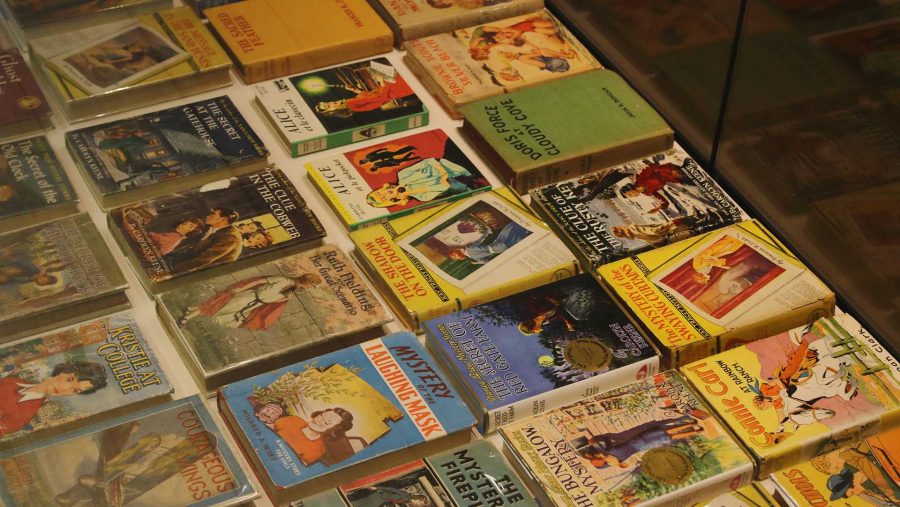The Iowa Women’s Archives is celebrating 25 years of gathering and sharing the stories of women.
Since its founding by Louise Noun and Mary Louise Smith in 1992, the archive has preserved the history of Iowa women ever since.
Its new exhibition, 25 Collections for 25 Years: Selections from the Iowa Women’s Archive is open to the public in the Main Library Gallery through Dec. 29.
The exhibition presents a sample of 25 collections from the more than 1,200 collections in the archive. It showcases diaries, photos, scrapbooks, letters, and other artifacts from various women who lived in Iowa. The 25 distinct collections offer a glimpse into the lives of women from different cultures, backgrounds, and time periods.
The archive kicked off the celebration of its 25th anniversary with an exhibition over the summer titled Power to the Printers: the Alternative Press in Iowa City and a reunion of Iowa City feminists of past decades.
RELATED: The power in sharing stories
On Nov. 10, there will be a “celebration and symposium” including an open house, tours, and a dinner with keynote speaker Rekha Basu. On Nov. 11, a symposium will take place in Main Library Shambaugh Auditorium featuring three panels.
Kären Mason, the archive curator, said the 25 Collections for 25 Years exhibition came about by asking people who have used the archives to write comments about specific collections. These reflections are featured in the exhibit.
Rebekah Kowal, a University of Iowa professor and the chair of the Dance Department, wrote a reflection on her study of the Dieman-Bennett papers. While writing a book on the issues of globalization, Kowal used the archives of the Iowa-based dancers Edna Dieman and Julia Bennett as research. Two of her graduate students spent a year studying their archives for their Honors practicum research.
“[The archive] brings it all to life,” Kowal said. “It’s personal; it’s vital. And that’s an incredible gift for a student.”
Mason said graduate students come from all over to use the archives for research. UI students and classes are also very common.
“We have been very conscious of preserving the history of people who are usually left out of the history books and left out of archives,” Mason said. “That starts with women. Until the last few decades, women were not included in history; they weren’t thought to be important enough.”
The archive has had several projects focusing on the history of specific groups of women. For example, graduate research assistant Jeanette Gabriel has been gathering history for the Jewish Women in Iowa Project for the past three years. There is also a Women’s Suffrage and Mujeres Latinas project. In past years, a project focused on the history of African-American women.
“The Mujeres Latinas project has been pretty big for a lot of students in Latin American studies,” graduate research assistant Anna Tunnicliff said. “It’s empowering for other groups as well who can see themselves in the archives. There’s a lot to learn about women’s history here and groups that are usually underrepresented in the archives.”
The archive strives to capture numerous perspectives from women through history.
“I think it’s really important for women to have models of other women who have faced the same sorts of issues that they face,” Mason said. “There are so many different experiences represented through Iowa’s past.”



